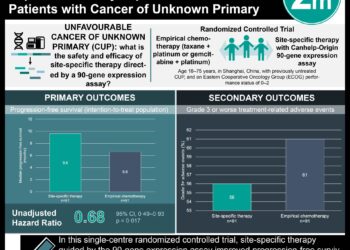The HMPS II: Characterizing adverse events in hospitalized patients [Classics Series]
Image: PD
1. Drug-related complications were the most common type of adverse event in hospitalized patients.
2. Adverse events due to negligence in hospitalized patients were more likely to cause serious disability or death than adverse events not attributed to negligence.
Study Rundown: Many adverse events in hospitalized patients are not preventable due to current limitations in medical knowledge or capabilities. Advances in scientific knowledge and medical technology may reduce the frequency of these events over time. However, many errors in management can be prevented with the development and implementation of clinical practice guidelines and quality assurance programs. The HMPS produced reliable estimates of rates of adverse events in hospital as well as the proportion of those events attributable to management error and negligence. The study also identified high-risk groups and areas where rates of negligence were highest, both of which can be targeted with quality assurance programs. The study supports the use of systems analysis and disciplinary action in instances of negligence to minimize the significant consequences of adverse events in hospitalized patients.
In sum, by further characterizing the adverse events identified in HMPS I, the findings from the HMPS II study have been fundamental in guiding the development of quality improvement initiatives by identifying priorities for the field of patient safety.
Please click to read study in NEJM
In Depth [retrospective, case review]: Published in NEJM in 1991, the results of the Harvard Medical Practice Study (HMPS) II further analysed the adverse events described in HMPS I by classifying the type of adverse event, where the event occurred (inside or outside hospital), those most likely to result in serious disability, the type of management error responsible, and those most likely to be due to negligence. As described in the HMPS I summary, this investigation included a random sample of 30,195 hospital records from the state of New York in 1984. Records were reviewed independently by two physicians for the occurrence of adverse events.
Drug-related complications were the most common single type of adverse event. The proportion of adverse events attributed to negligence varied between categories, with 17% of operative adverse events, 75% of diagnostic mishaps, and 77% of therapeutic mishaps attributed to negligent care. Adverse events due to negligence in hospitalized patients were more likely to cause serious disability or death than adverse events not attributed to negligence.
By Adrienne Cheung, Andrew Cheung, M.D.
© 2013 2minutemedicine.com. All rights reserved. No works may be reproduced without written consent from 2minutemedicine.com. Disclaimer: We present factual information directly from peer reviewed medical journals. No post should be construed as medical advice and is not intended as such by the authors or by 2minutemedicine.com. PLEASE SEE A HEALTHCARE PROVIDER IN YOUR AREA IF YOU SEEK MEDICAL ADVICE OF ANY SORT. Content is produced in accordance with fair use copyrights solely and strictly for the purpose of teaching, news and criticism. No benefit, monetary or otherwise, is realized by any participants or the owner of this domain.




![ABCD2 Score: Predicting Early Stroke Risk After Transient Ischemic Attack (TIA) [Classics Series]](https://www.2minutemedicine.com/wp-content/uploads/2013/05/web-cover-classics-with-logo-medicine-BW-small-jpg-350x250.jpg)




